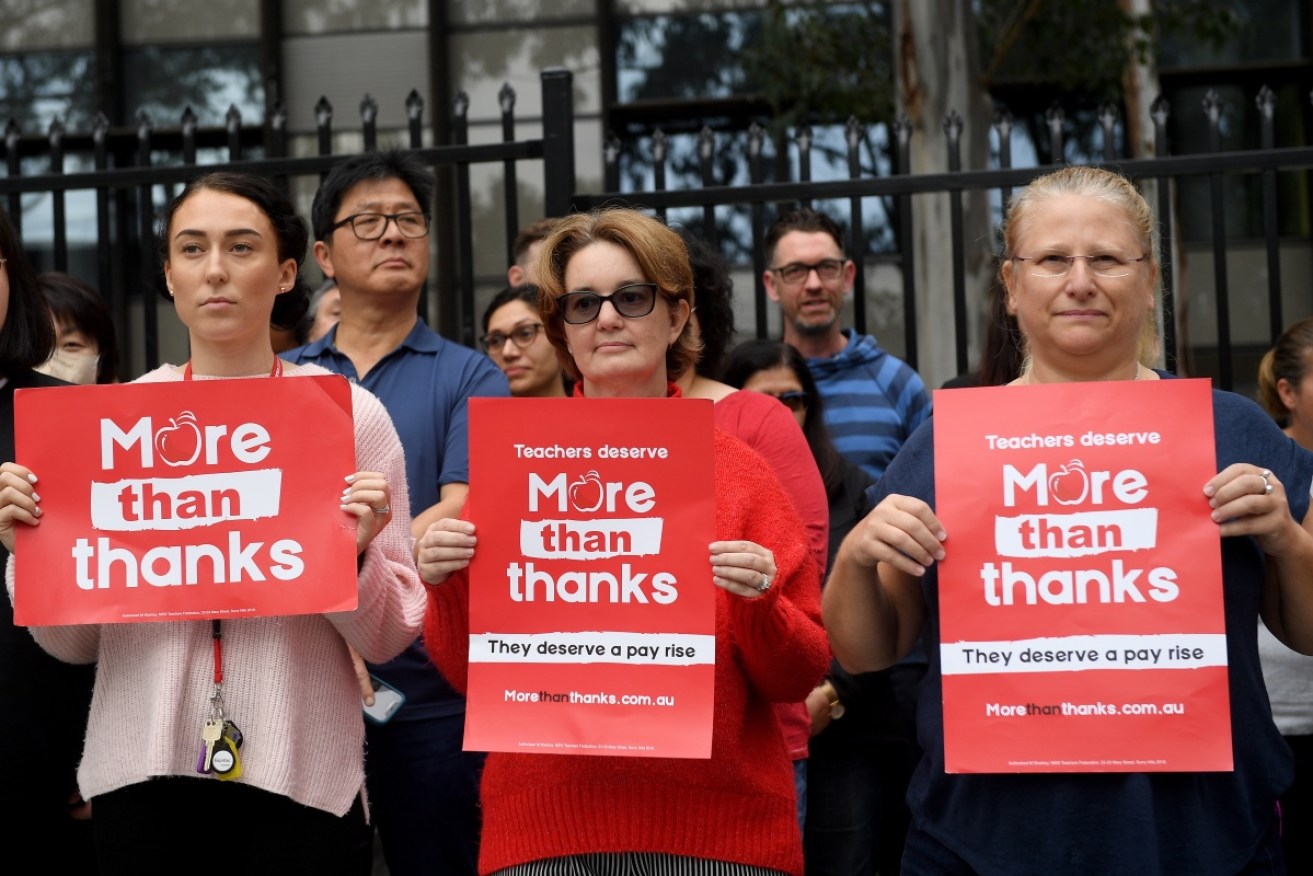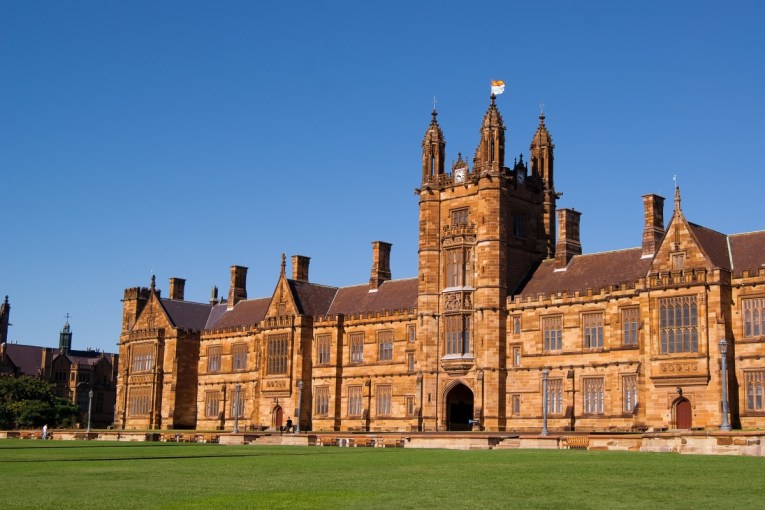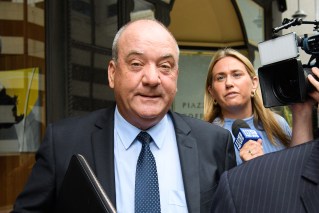Paul Bongiorno: Union bashing is a return to a political Jurassic Park


The Coalition has failed to grasp the typical unionist is a woman in the service sector, carer, nurse, early educator or teacher. Photo: AAP
Australia is being taken on an imaginary excursion into a past dark age by the federal Opposition and some of its hyperventilating media allies over the suggestion workers should be given more leverage in negotiating their wages and conditions.
According to the scenario, Anthony Albanese is leading us all into a kind of industrial Jurassic Park where the trade unions like massive dinosaurs roamed the landscape unchallenged and trampled on lesser creatures like employers, small businesses and everyone else.
Peter Dutton in responding to the extensive rethink of how Australians should be hired, fired and paid that came out of last week’s Jobs and Skills Summit warned key proposals would take us back to the 1970s where unions had it in their power to bring the nation to its knees.

Opposition Leader Peter Dutton fears changes could bring the nation to its knees.
Dutton said we haven’t seen anything like it in living memory – for someone born in November 1970 he could be right, except what we are confronting now is not the prospect of reviving a long-extinct monster.
Rather it is a crisis in wage justice hitting the standard of living for millions of Australians.
At the summit, captains of industry, union leaders and the government agreed the system of enterprise bargaining introduced by the Keating Labor government in 1991 was broken and needed fixing.
The evidence was not hard to find: A decade of stagnating wages despite record profits that not even the collapse in labour supply – thanks to the pandemic and closed borders – could overcome.
The solution that has generated most fear-mongering is the idea of multi-employer bargaining hammered out between the Australian Council of Trade Unions and the Council of Small Business Associations.
Labor took the policy to the last election without much fanfare, and even at the 2019 poll the state of industrial bargaining disrepair was identified by then leader Bill Shorten.
But Labor’s election win this year and the Prime Minister’s masterful management of the issue through the summit process has Liberals really worried that the work begun so successfully by the Howard Coalition government to bring the unions to heel is about to be reversed.

Paul Keating has taken aim at the damage done to workers’ rights. Photo: Getty
The intervening six years of the Rudd and Gillard Labor governments – rather than restore and revive the Keating model – did it further damage.
That’s the view of the former Labor prime minister and his co-author of the policy, then ACTU secretary Bill Kelty.
Both men have told The Australian Financial Review the “silly” no worse off tests and Julia Gillard’s industrial relations laws meant to remedy Howard’s WorkChoices rampage in fact “undermined productivity and overall wages growth”.
Albanese and his Workplace Relations Minister Tony Burke should be grateful for this endorsement in the light of reality in 2022.
Of course, what is happening now is the legacy of 10 years of Liberal rule setting the tone for the Fair Work Commission which, as Keating and Kelty point out, led to wage suppression, thanks to its poor design.
The government can safely ignore Peter Dutton’s romp in the Jurassic era where the biggest unions were the blue-collar ones.
These days your typical unionist is a woman in the service sector – age and disability carers, nurses, early educators, teachers and the like.
Far from being held to ransom by “union thugs” the persistent stereotype favoured by Dutton and his deputy Sussan Ley, the national interest is being held hostage by too few women able or willing to be employed in jobs that exhaust rather than reward them.
In question time on Monday there was an inkling that Dutton may be slowly getting some understanding of this.

Mr Dutton labelled members of the CFMMEU as ‘dogs’ and ‘union thugs’.
After a particularly provocative question from Ley ignored by Albanese, the Opposition Leader intervened telling the Speaker they were referring not to union representatives at the summit who were “good people” but rather the “dogs of the CFMMEU”.
But these “good people” may not be too impressed if attempts to give them more clout in wage negotiations via multi-employer bargaining is derailed and their wages stay suppressed.
For his part, the Prime Minister is refusing to say how far his new order will attempt to go, neither ruling anything in or out when it comes to compulsion, limits or the nature of a better off overall test.
We may not see the colour of the government’s money until Tony Burke’s negotiations with stakeholders is complete, probably within two months.
In the meantime, Albanese dismisses the wild speculation.
He says, “lots of people are saying lots of things and they’ll continue to do so. That’s the way that bargaining works in our system” and when you get down to the detail “it’s possible to get agreement”.
The Prime Minister also accepts that governments should always bear in mind the “impact on people of decisions that are made”.
He could have added “or not made” – the time for prevarication is over surely a key message from the election.
Paul Bongiorno AM is a veteran of the Canberra Press Gallery, with 40 years’ experience covering Australian politics








